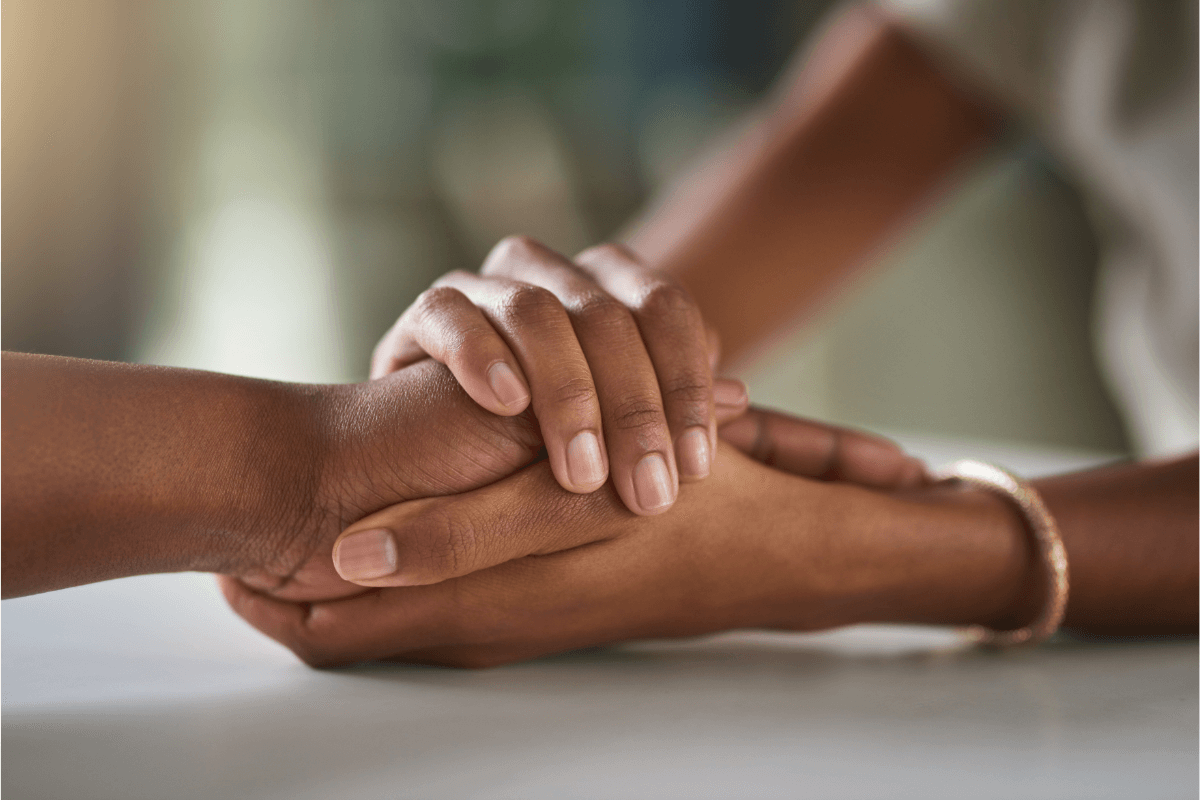When you’re trying to recover from trauma, having a solid support system can truly impact your recovery and mental health. Knowing that a person or people is in your corner can help you stay motivated and maintain a positive outlook. We will take a closer look at why a support system in trauma recovery is necessary, as well as how you can help build a supportive community for yourself or a loved one in trauma recovery.
Why a Support System in Trauma Recovery is Necessary
Knowing that there are a few people you can trust while you recover from trauma is necessary to help you better manage the challenges you may face. It can not only help the recovery process but can also positively impact mental health.
How a Support System Impacts Recovery
A support system can help create a safe space for trauma recovery survivors. Having people around you to provide support can offer a comfortable place where there are no triggers associated with the trauma.
A support system can also provide a nonjudgmental space where those recovering from trauma can talk free of isolation and fear. They can get the security and acceptance needed to continue the recovery process. When people in trauma recovery have a support system, it also allows them to develop healthy behaviors and make better choices.
With people in your corner, it can help you maintain the motivation to seek trauma treatment. They can give you a needed pep talk to stay strong and see that recovery is possible.
How a Support System Impacts Mental Health
Studies have shown that having a support system can benefit your mental health by lowering people’s stress.[1] It can also help to prevent loneliness and isolation, which can put you at a higher risk for anxiety, depression, and other mental health issues.
A support system can also put you in a better mood, making you feel better. It can make you feel as though recovery is possible as you work to overcome your trauma.
Types of Support Systems
Support systems can come in many shapes and sizes. You may have a support system consisting of family and friends who care about your recovery. These can be people who genuinely care about your recovery and your outcome.
Support groups for those dealing with trauma can also be beneficial. These groups allow you to interact with people who are experiencing similar situations. By sharing stories and exchanging advice, you can continue on your path to recovery.
Online support groups can also provide help from people anywhere in the world. Hearing from others who can share different perspectives can also prove beneficial for those in trauma recovery. Support groups, whether online or in-person, also provide hope for those in recovery. They can see that they are not alone and that others are fighting the same battles. Together, people in these groups can help each other succeed.
How to Build a Supportive Community for Those in Trauma Recovery
There are several things you can do to help build a supportive community for those in trauma recovery.
Educate Yourself
Educating yourself about trauma can help build a supportive community. Trauma impacts people in different ways, and being aware of these ways can help you provide the support your loved one needs best.
Actively Listen
Actively listening to your loved one can be extremely supportive. Focus on what is being said and provide a nonjudgmental space where they can feel comfortable speaking their mind.
Give Them Space
Give your loved one space to heal. If they are anxious or fearful, let them express themselves when ready. Let them do things on their own time to give them the best chance at recovery.
Be Patient
When someone is recovering from a traumatic event, they may not know exactly what they need. Be patient so that they can navigate the process. Practicing patience is an excellent way to be supportive.
Seek Help
Sometimes, there is only so much you can do to offer support for someone in trauma recovery. Seeking the help of professionals, such as through therapy or another support group, can be extremely beneficial.
Relax and Get Involved in Activities
You can provide support by helping your loved one get involved in activities. Exercising, socializing, or just sitting around with friends are all excellent ways to help a loved one recover.
Things to Avoid When Offering Support During Trauma Recovery
While there are plenty of things you should do to provide support during trauma recovery, there are also many things to avoid. These include:
- Being Judgmental
- Using General Phrases like “look for the silver lining”
- Avoiding Talking About the Event
- Putting a Time Limit on the Recovery
By allowing your loved one to talk about their experience without judging, you are helping them in the recovery process. It’s also important not to use cliches that may minimize their feelings. Don’t pretend to know how your loved one feels about what has happened. Everyone experiences trauma differently. By understanding this, you can provide some of the best support possible.
Seek Trauma Recovery Treatment at Healing Foundations Center
Healing Foundation Center is your premier trauma treatment center in Scottsdale. We help people dealing with all types of trauma, and our team utilizes the best techniques to help people live productive lives.
We get to know each patient to determine what type of therapy they would benefit from best. Our treatments include cognitive behavioral therapy, EMDR, somatic experiencing, dual diagnosis treatment, and more. Many times, treatment plans will consist of a combination of these efforts.
Contact Healing Foundations Center today so we can tell you more about the trauma treatments that are available at our Scottsdale location.
Source:
